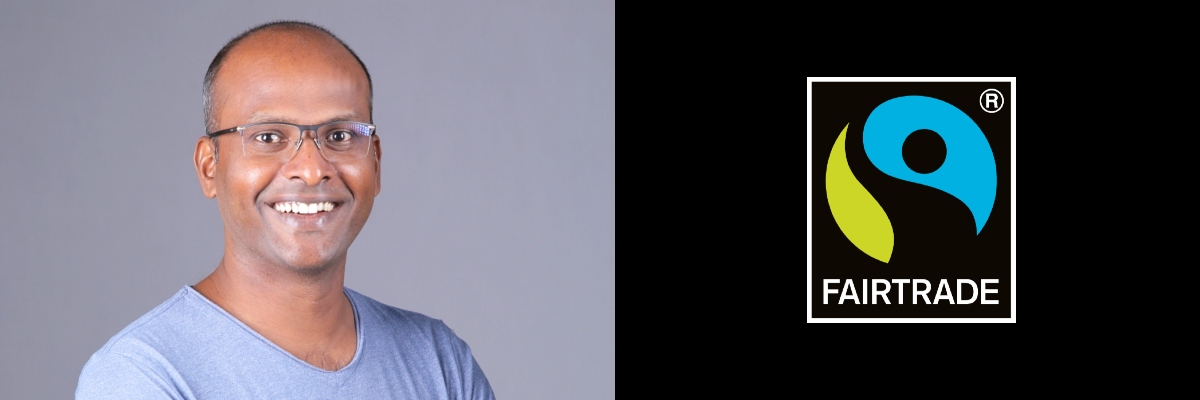Batting for fair trade consumables such as coffee, tea, chocolate and fruit, Senthil Nathan, the CEO of Fairtrade ANZ, emphasises that it is more important now than ever that businesses buy Fairtrade-certified products.
"With the economy constantly in the headlines, businesses should integrate sustainability with their cost-cutting efforts and not forego their environmental and social commitments," says Senthil.
Senthil, a sustainability warrior with over two decades of experience, gives five reasons businesses should choose Fairtrade-marked products.
1. The cost of Fairtrade-marked tea or coffee is not significantly higher
It's a common misconception that the price of Fairtrade-marked tea or coffee is exorbitant and massively impacts the business' overall coffee budget.
Yes, the prices of Fairtrade-certified products are a little dearer than those of non-certified ones, but if you analyse the spending on an annual scale, the overall cost is a fraction more and certainly does not put a dent in your balance sheet.
2. Assured fair price for farmers in a volatile climate
The farmers producing these coffee beans and tea leaves are at the most vulnerable end of society. With climate change's volatile weather looming all year round, a week of extra rain or draught can spoil months' worth of labour and drain them financially with a long road to recovery.
With a Fairtrade minimum price, farmers are guaranteed a fair price for their produce, safeguarding them from poverty, child labour, inequality, climate change, and modern slavery. Plus, you give them the integrity of being farmers earning their due through trade and not aid.
3. Investments in projects important for the farming community
The premium paid via Fairtrade helps the farming community invest in long-standing issues, such as establishing a clean drinking water system for the village, education for underprivileged children, promoting good agricultural practices, addressing climate change, etc.
When you choose Fairtrade-marked products, you play a crucial role in ensuring that children from poor families in the far corner of Bangladesh get to go to school or that a small family in Costa Rica sustains their living on their ancestors' coffee farms.
4. Sustainability is not just about the environment; it includes people
Sustainability is not just about making the Earth a better place to live and breathe but also about the people. Making sustainable choices also means people get a fair opportunity for education, food, shelter, wellbeing, and social equality.
5. Fairtrade's strong global credentials and impact
The Fairtrade mark is a globally recognised ethical label, and in New Zealand, it is trusted by 71%* of Kiwis. Fairtrade labelled products are sold in over 140 countries (2021), and 1.9 million farmers and workers were helped in 70 countries in 2022.
"Our few extra dollars on coffee beans can profoundly impact the lives of vulnerable smallholder producer communities," says Senthil.

Fairtrade ANZ CEO Senthil Nathan, and Fairtrade logo (Photo: Supplied)
OfficeMax's partnership with Fairtrade ANZ:
OfficeMax has been working with Fairtrade for over a decade and has witnessed a gradual rise in demand for Fairtrade products. OfficeMax recorded a 16.4% increase in sales volume of Fairtrade-marked products in 2023 compared to the previous year.
"OfficeMax plays an integral role in being the channel to promote and sell Fairtrade marked products to businesses and individuals in New Zealand. We are proud to be partners in promoting sustainability in businesses across Aotearoa, New Zealand," says Senthil.
You can do your part by purchasing Fairtrade products..
*Fairtrade Consumer Insights 2023 GlobeScan & Kantar Better Futures 2023 report. Based on awareness of the Fairtrade mark.